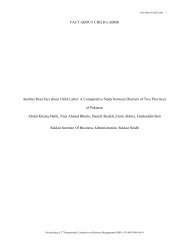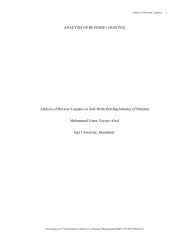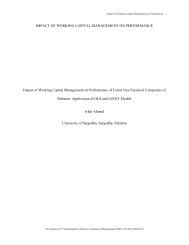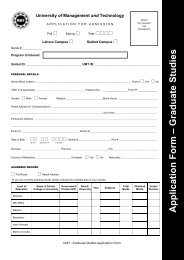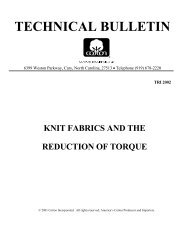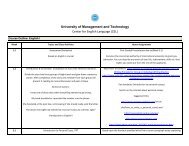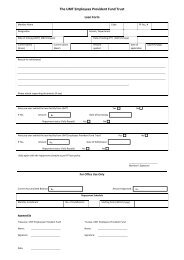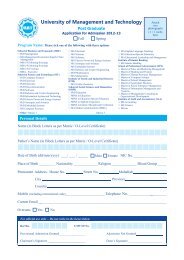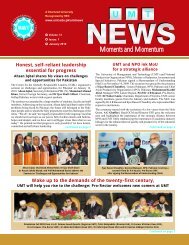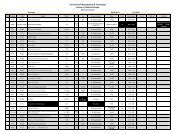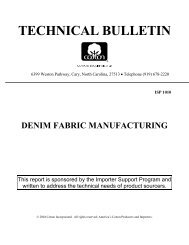Emotional Labor & Big Five Personality Model - CGR - University of ...
Emotional Labor & Big Five Personality Model - CGR - University of ...
Emotional Labor & Big Five Personality Model - CGR - University of ...
Create successful ePaper yourself
Turn your PDF publications into a flip-book with our unique Google optimized e-Paper software.
<strong>Emotional</strong> labor & big five personality……8high on neuroticism are more likely to experience negative emotions and feelings <strong>of</strong> stress andanxiety. Therefore they require more psychological effort to exhibit positive emotions andrestrain negative emotions on job which lead towards emotional labor.Because <strong>of</strong> frequent experiences <strong>of</strong> fear, repeated stress, and frustration, neurotics areassumed to be depressed, insecure, and use futile coping strategies when faced with problems.Individuals who having low neuroticism are considered as calm and comfortable (Costa &McCrae, 1987; George, 1989; McCrae & John, 1992). While individuals with neuroticpersonalities experience negative emotions more frequently, they may need effort to suppressthese negative emotions during customer interactions. Austin, et al. (2008) found that there is apositive relationship among neuroticism and emotional labor. Individuals with neuroticcharacteristics are not suitable for service sector. They require more effort to regulate theorganizationally required display emotions to fulfill the job tasks. Thus this is proposed thatthey will face more emotional labor to manage expressions and emotions.Proposition 2: Individuals with neurotic personality are more prone to emotional labor.ConscientiousnessConscientiousness relates to being responsible, self-disciplined, and acting dutifully (Costa &McCrae, 1992). Conscientious individuals are also characterized as being competent,hardworking, good at problem-solving and organized (Block, 1961, Digman, 1990 Zellars et al.,2000;). Conscientious individuals are careful and responsible (Diefend<strong>of</strong>f et al. 2005). They mayillustrate greater devotion to display rules and may meet organizations expectations by tryingto be more honest and authentic. Conscientious individuals are careful in carrying out their jobtasks and may thus be more appropriate to adhere and display rules for emotional expression.Whereas display rules typically support the exhibit <strong>of</strong> positive emotions and the repression <strong>of</strong>negative emotions. Therefore individuals with conscientious characteristics are hardworkingorganized and careful. Thus, results support the argument that these individuals are good ininterpersonal transactions. They need less effort to express positive emotions and suppressnegative emotions. It is proposed that conscious individuals perform less emotional labor afterproper training.Proposition 3: Individuals with conscientious personalities are less prone to emotional laborAgreeablenessCharacteristics <strong>of</strong> Agreeable individuals are being, tolerant, cooperative, forgiving and caring(Barrick & Mount, 1991). Agreeableness mostly refers to an interpersonal orientation; suchindividuals are likable and good natured. Agreeable individuals may be more likely to expresspositive emotions and suppress negative emotions on the job, consistent with theirProceedings <strong>of</strong> 3 rd International Conference on Business Management (ISBN: 978-969-9368-07-3)



